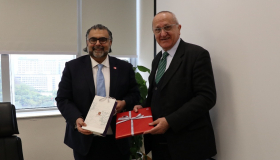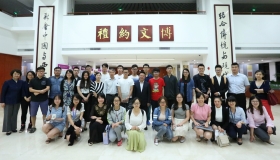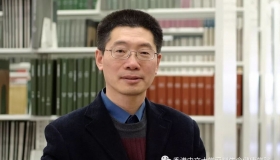Prof. Jia Jianmin Leads Expert Team to Study the Relationship Between Response to Coronavirus Outbreak and Sense of Happiness During Chinese New Year
The Lantern Festival traditionally falls on the fifteenth day of the new year by lunar calendar and marks the end of the celebration of the Chinese New Year. However, this Chinese New Year seems unusual because of the novel coronavirus outbreak. What is the change towards the pandemic regarding to the response of Chinese people and their sense of happiness? With the guidance of the Department of Management Sciences of the National Natural Science Foundation of China, Prof. Jia Jianmin led an expert team to study the relationship between the response to coronavirus outbreak and the sense of happiness during the Chinese New Year. Based on 20,288 questionnaires, samples from 346 cities in China used in the report, covering various social groups, including students, workers, farmers, militaries, retirees, and staff from educational, scientific and cultural organizations, firms, governments or public institutions, and hospitals, etc. The majority of the sample are the middle-class and intellectuals.
Happiness Lowered and 90% of Interviewees Preferred to Stay In
Because of the city’s lockdown and transportation control, 83.39% of people canceled or changed their original plans of visiting relatives and travels during the Chinese New Year. The model shows that with the coronavirus outbreak, the happiness of the citizen drops accordingly. People who stay in the city where they work or study for the Chinese New Year feel less happy than those who travel to other cities. Moreover, women feel much happier than men. People who are older, healthier, and with a higher level of education feel happier. Families of higher income do not feel even happier during the festival.
To combat against the novel coronavirus, most of the people (91.33%) did not or barely went outside. Among them, people who stayed in all the time account for 31.87%. The survey reveals that the frequency of Hubei residents going out is much lower than that of people of other provinces. The frequency of Wuhan residents going out is lower than that of people of other Hubei cities.
TV & Online Entertainments Improve Happiness During Pandemic
The percentage of interviewees who spent more time on TV and online entertainment activities is 60.59%, of which 28.90% witnesses a higher increase. People mostly use social media platforms, such as WeChat, to interact with friends such as sending greetings. Compared with the previous year, those who increase online social behavior represent 51.74% of the interviewees (among them, 19.03% have a higher increase). However, 18.47% of the respondents decrease their social behavior in WeChat. Therefore, the behavior of the whole group diversifies.
During the pandemic, how do people keep happiness? Prof. Jia said, experts found that online entertainment activities can improve people’s happiness effectively during the period. The group who spends more time watching TV and browsing the Internet (compared with the previous year) is much happier than other groups and has a lower level of perceived threat. The research on perceived risks during earthquakes has also found that people who use mobile entertainment apps after the earthquake have a lower level of perceived risks than others. Online entertainment is a response behavior that reduces pressure and perceived threat, and has a positive influence on improving happiness. For example, on the first day of the Lunar New Year, Lost in Russia was debuted on streaming platforms, such as TikTok, free of charge to audiences, and it has been watched six hundred million times in three days. ByteDance, owner of TikTok, then broadcasted 13 other films for free. Moreover, the Chinese Central Propaganda Department and State Administration of Radio, Film and Television coordinated with several streaming platforms to donate more than ten TV series to Hubei and Wuhan television stations. All efforts were made to unite people in difficult times and to strengthen confidence with the people in Wuhan, Hubei. This survey provides empirical evidences.
Entertainment Activities of Wuhan Residents Are Less Than Others
The survey also shows that the happiness of Wuhan residents is noticeably lower than people in other Hubei cities, and that of Hubei’s people is lower than people in other provinces. Facing the heaviest pressure, Wuhan’s people spent less time on entertainment activities, compared with others. The pressure of people in Xiangyang and Huanggang ranks the second and third.

Sample Description
During Jan 28-31, 2020, participants from all sectors of the society all over the country took part in the survey through WeChat Moment and WeChat groups. The total of questionnaires is 20,288, and samples come from 346 cities in China. The numbers of cities with more than 50 samples are 108. The samples are from different social groups, including students (25.20%), staff from educational scientific and cultural organizations (21.00%), firms (15.91%), governments or public institutions (13.61%), and hospitals (3.84%), workers (3.34%), migrant workers(2.13%), militaries (0.42%), retirees(1.74%), farmers (1.55%) and others (11.16%). 91.12% of the respondents fall into the age group of between 20-59 years old. Interviewees with Bachelor degrees or above are 89.63%, and the families with the income of between one hundred thousand to ten hundred thousand RMB Yuan account for three quarters. The proportion of women is 58.79%. Overall, the majority of samples are middle-class and intellectuals. The fixed effects, such as locations, jobs, data of survey and time, are controlled in the model analysis of this article.




